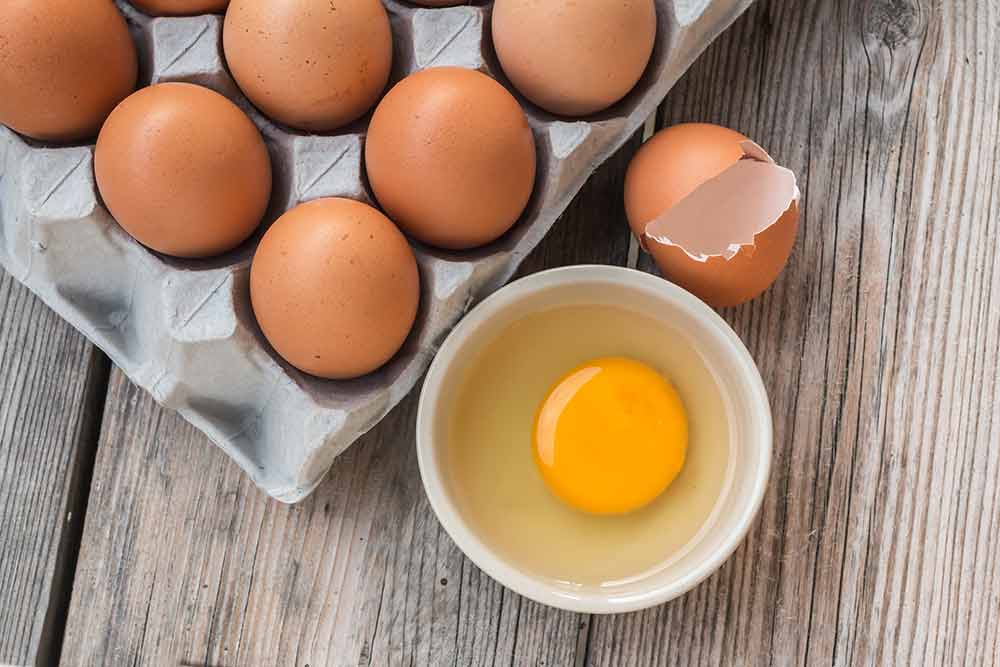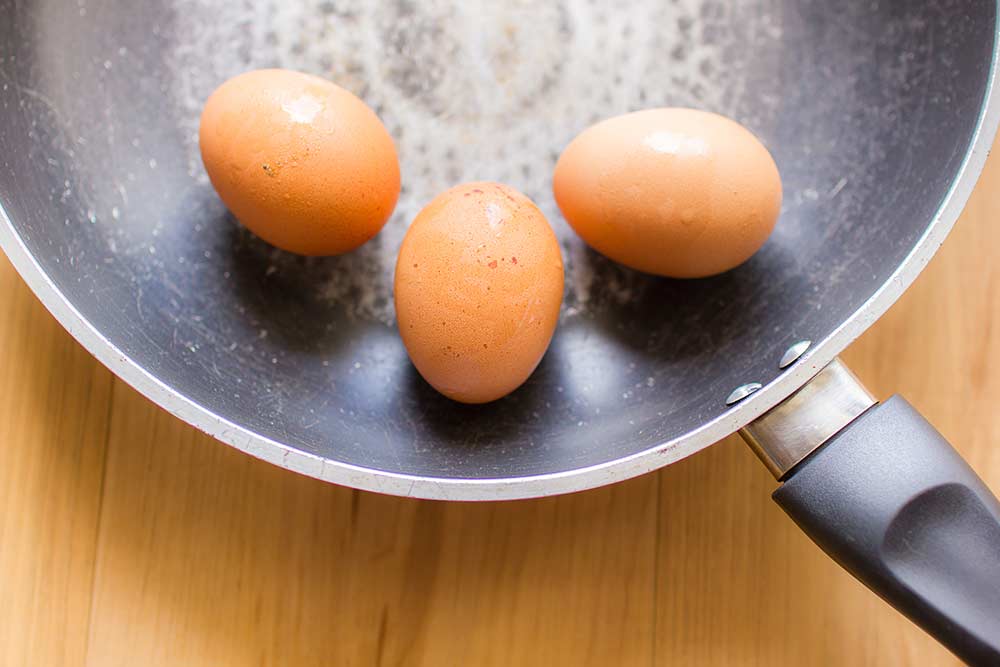By MACROS | Published on October 22, 2017
Your go-to egg whites are a high-quality protein source, but whole eggs have been shown to promote muscle growth, strength gains and fat loss.
It’s time to break a few myths:
Egg breakdown
Egg white protein is often referred to as the perfect protein due to its amino acid make-up and the body’s ability to utilize it properly. The average large, whole egg contains about 72 calories, 6g protein, almost 0g carbs, 5g fat and about 200mg cholesterol. While the average large egg white contains only about 17 calories, 4g protein, 0g carbs, 0g fat and 0g cholesterol.
Egg white contains as many as 40 different proteins. Of these, ovalbumin comprises the majority, making up about 55% of the protein in egg white. Ovotransferrin is an iron-binding protein in egg white that provides antimicrobial properties and makes up over 10% of the protein content.
Ovomucin is another type of protein that is responsible for less than 5% of egg white protein and provides the jellying property of egg white, as well as further antimicrobial properties. Egg white protein is rich in BCAAs and arginine. But is also rich in the sulfurcontaining amino acids cysteine and methionine. These amino acids are critical for maintaining the structure of many proteins, such as collagen, which is critical for maintaining joint health, as well as certain hormones.

Get yolked
Although bodybuilders used to focus on getting just the egg white for its protein, and avoiding the yolk because of the fat and cholesterol, today we know it’s more beneficial to consume both the egg white and the yolk together because that golden center contains the majority of the micronutrients in eggs. This includes vitamin A, vitamin D, vitamin K, B vitamins, selenium, iron, zinc and phosphorus. Of course, the yolk also contains all the fat and cholesterol.
As far as cholesterol is concerned, there is less worry about consuming eggs and rising blood cholesterol levels because they don’t appear to be negatively influenced much by the cholesterol from eggs. In fact, one study from the University of Connecticut tested the cholesterol response of 25 males and 27 females to an egg diet (640mg per day of additional cholesterol) or a non-egg diet (0mg per day). They found the cholesterol in egg yolks does not raise the LDL cholesterol particles that are associated with cardiovascular disease.
– RELATED: Sweet Potato Spanish Omelette Recipe –
As far as the fat is concerned, we now know fat is important in the diet. The saturated fat in egg yolks is less than half of the total fat. But saturated and monounsaturated fat, also in egg yolks, are important for maintaining higher testosterone levels. Rather than be harmful, the fat and cholesterol from yolks appear to provide benefits for those who strength train.
One study from Texas A&M found subjects consuming three whole eggs per day while following a weight-lifting program for 12 weeks gained twice as much muscle mass and twice as much muscle strength as subjects eating either just one egg per day, or no eggs. And those kinds of benefits may be due to the cholesterol content. After all, cholesterol is converted in the body to testosterone. And cholesterol also helps to maintain the integrity of muscle cell membranes (this helps them function properly and avoid breakdown).
Scientists from Kent State University put 47 older adults (ages 60–69) on a 12-week weight lifting program and tested them before and after for changes in muscle mass and strength. They placed all subjects on a moderate protein diet and divided them into two groups. Group one followed a lower cholesterol diet (1.6mg per pound of bodyweight, or approximately 150–250mg per day), while the other half consumed a higher cholesterol diet (2.6mg per pound of bodyweight or about 250–450mg per day). After 12 weeks the group that consumed the lower cholesterol diet did not increase muscle mass and only increased their strength by about 35%. The higher cholesterol group, on the other hand, had an increase in muscle mass of about 5lb and upped their strength by about 90%.

Drop the fat
Eggs can also help you get leaner. Research from Saint Louis University found people who eat eggs for breakfast ate fewer calories through the day than those who had a breakfast that was the same amount of calories, but from a bagel. A follow-up study by the same team found when women consume two eggs for breakfast at least five times per week over a 12-week period they lost 65% of weight and had an almost 85% reduction in their waist size compared to those not adding eggs to their breakfast. They also found adding two whole eggs to their breakfast resulted in no changes in their cholesterol levels.
Consider eating two to three whole eggs per day to take advantage of all the benefits eggs have to offer in performance and body composition. You can bump up the protein intake by adding an extra white or two for each yolk. While eggs are typically thought of as a breakfast food, you can enjoy them anytime throughout the day. Hardboiled they go great in salads or can be a stand-alone snack. Or if you want to really take your eggs up a notch, try my egg and ham cup recipe, above, that’s easy to make and delicious.

